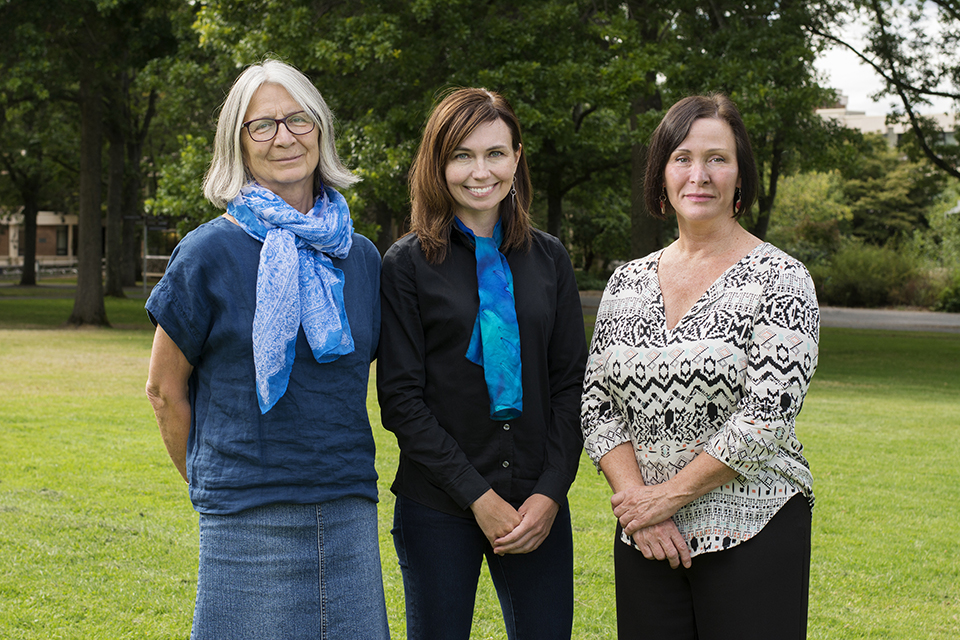Three UVic stars named to 'rising star' national college
Science, Law, Human and Social Development

Three researchers known for their passion and commitment to some of the most significant issues facing the country and the planet have been named to the Royal Society of Canada (RSC) College of New Scholars, Artists and Scientists.
Marine biologist Julia Baum and Indigenous scholars Charlotte Loppie and Val Napoleon were among 70 Canadians confirmed Sept. 12 as new members of the college.
Founded in 2014, the college is Canada’s first national system of recognition across disciplines for an emerging generation of Canadian intellectual leaders. Members are nominated by their peers and selected for a seven-year term based on having demonstrated a high level of achievement at an early stage in their career. College members have already received other recognition in their fields for excellence.
Marine ecosystems in trouble
Julia Baum, a professor in the Department of Biology, studies the resilience of marine ecosystems in the face of human disturbance. Her research focuses on their ecology and conservation, investigating how disruptions such as climate change are altering these ecosystems, and if and how they’ll recover.
Since 2009, Baum has done hundreds of dives in the coral reefs of Kiritimati Island (known as Christmas Island), 2,000 kilometres south of Honolulu. She’s studied the impact of the worst global coral bleaching episode in recorded history and is now watching for initial signs of recovery.
At the same time, Baum is a powerful advocate for a number of issues faced by Canadian scientists. In addition to receiving global coverage for her research, she recently led an investigation on deteriorating funding for fundamental research in Canada which was reported on by Nature and Science magazines.
Indigenous health inequities
Charlotte Loppie is a professor in UVic’s School of Public Health and Social Policy, and director of the Centre for Indigenous Research and Community-Led Engagement. She’s acting director of the university’s Indigenous Governance Program.
Loppie’s work focuses primarily on Indigenous health inequities, Indigenous HIV/AIDS and the social determinants of Indigenous health. She’s committed to patient-oriented research, a way of thinking about and conducting research as something that is done by, for and with the people with lived experience who are the focus of the research.
Loppie was one of only three Canadian researchers awarded a $100,000 research prize this year from the Canadian Institutes of Health for patient-oriented research.
Indigenous legal traditions
Val Napoleon holds the Law Foundation Chair of Aboriginal Justice and Governance at UVic, and is one of Canada’s most influential Indigenous scholars. She’s the founder of the university’s Indigenous Law Research Unit (ILRU), which is committed to the recovery and renaissance of Indigenous laws and the only dedicated unit of its kind in the country.
The ILRU has worked with more than 40 First Nations communities to apply their own laws to specific issues within their communities, a process driven by community members, Elders and knowledge-keepers. She and faculty colleague John Borrows, the Canada Research Chair in Indigenous Law, are working to establish UVic as the first Canadian university to offer a joint degree in Canadian common law and Indigenous law.
Napoleon is from northeast British Columbia (Treaty 8) and a member of Saulteau First Nation. She’s an adopted member of the Gitanyow (Gitksan) House of Luuxhon, Ganada (Frog) Clan. Her current research focuses on Indigenous legal traditions, Indigenous feminism, citizenship, self-determination and governance.

